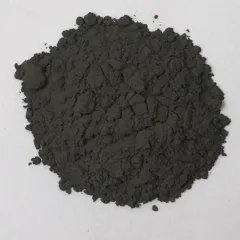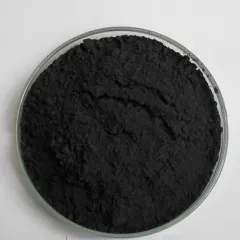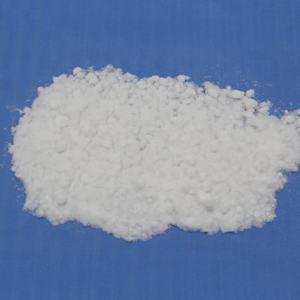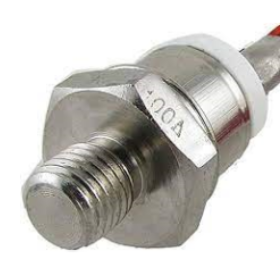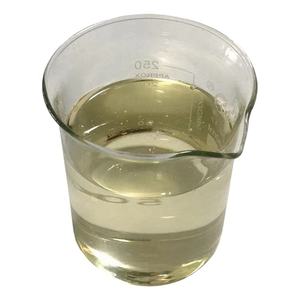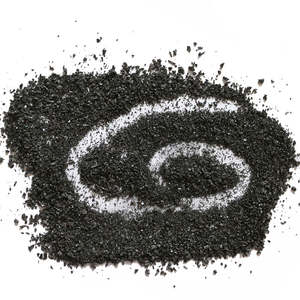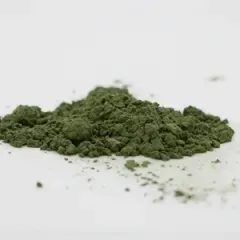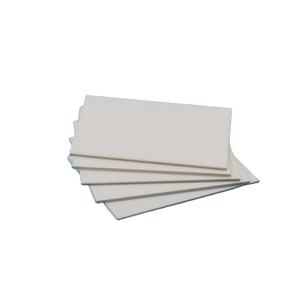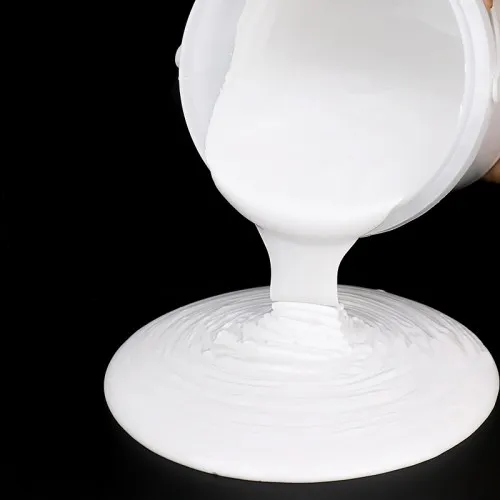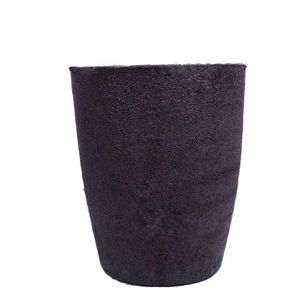1. Chemical Make-up and Structural Features of Boron Carbide Powder
1.1 The B FOUR C Stoichiometry and Atomic Design
(Boron Carbide)
Boron carbide (B ₄ C) powder is a non-oxide ceramic material composed largely of boron and carbon atoms, with the excellent stoichiometric formula B FOUR C, though it exhibits a wide range of compositional tolerance from approximately B ₄ C to B ₁₀. FIVE C.
Its crystal framework belongs to the rhombohedral system, identified by a network of 12-atom icosahedra– each containing 11 boron atoms and 1 carbon atom– connected by straight B– C or C– B– C straight triatomic chains along the [111] direction.
This distinct setup of covalently bound icosahedra and bridging chains imparts exceptional hardness and thermal security, making boron carbide among the hardest known products, surpassed only by cubic boron nitride and diamond.
The existence of structural problems, such as carbon shortage in the direct chain or substitutional problem within the icosahedra, dramatically influences mechanical, digital, and neutron absorption properties, necessitating specific control throughout powder synthesis.
These atomic-level attributes also contribute to its reduced thickness (~ 2.52 g/cm TWO), which is vital for light-weight armor applications where strength-to-weight ratio is critical.
1.2 Phase Purity and Contamination Results
High-performance applications require boron carbide powders with high stage purity and minimal contamination from oxygen, metallic impurities, or secondary phases such as boron suboxides (B TWO O TWO) or cost-free carbon.
Oxygen contaminations, commonly presented throughout processing or from basic materials, can create B TWO O four at grain boundaries, which volatilizes at heats and develops porosity during sintering, significantly weakening mechanical honesty.
Metallic pollutants like iron or silicon can act as sintering aids however might also form low-melting eutectics or additional phases that endanger solidity and thermal stability.
As a result, purification techniques such as acid leaching, high-temperature annealing under inert environments, or use ultra-pure forerunners are vital to produce powders ideal for innovative porcelains.
The fragment size distribution and particular surface of the powder likewise play crucial duties in identifying sinterability and last microstructure, with submicron powders normally enabling greater densification at lower temperatures.
2. Synthesis and Processing of Boron Carbide Powder
(Boron Carbide)
2.1 Industrial and Laboratory-Scale Production Methods
Boron carbide powder is mostly generated through high-temperature carbothermal reduction of boron-containing forerunners, many frequently boric acid (H FIVE BO THREE) or boron oxide (B TWO O THREE), utilizing carbon sources such as oil coke or charcoal.
The reaction, commonly accomplished in electrical arc furnaces at temperature levels between 1800 ° C and 2500 ° C, continues as: 2B TWO O FOUR + 7C → B FOUR C + 6CO.
This approach yields crude, irregularly designed powders that call for extensive milling and classification to accomplish the great bit dimensions needed for advanced ceramic handling.
Alternative methods such as laser-induced chemical vapor deposition (CVD), plasma-assisted synthesis, and mechanochemical handling deal paths to finer, a lot more uniform powders with much better control over stoichiometry and morphology.
Mechanochemical synthesis, for instance, entails high-energy ball milling of important boron and carbon, enabling room-temperature or low-temperature development of B ₄ C via solid-state reactions driven by power.
These sophisticated methods, while much more pricey, are gaining passion for generating nanostructured powders with enhanced sinterability and functional efficiency.
2.2 Powder Morphology and Surface Engineering
The morphology of boron carbide powder– whether angular, round, or nanostructured– straight affects its flowability, packaging density, and sensitivity throughout combination.
Angular particles, common of crushed and machine made powders, often tend to interlace, improving eco-friendly stamina however potentially presenting density gradients.
Round powders, typically produced by means of spray drying or plasma spheroidization, deal exceptional flow qualities for additive production and hot pressing applications.
Surface adjustment, consisting of covering with carbon or polymer dispersants, can improve powder dispersion in slurries and protect against load, which is critical for achieving consistent microstructures in sintered components.
In addition, pre-sintering therapies such as annealing in inert or lowering environments aid eliminate surface area oxides and adsorbed species, improving sinterability and last transparency or mechanical strength.
3. Practical Characteristics and Efficiency Metrics
3.1 Mechanical and Thermal Behavior
Boron carbide powder, when consolidated right into bulk porcelains, shows exceptional mechanical buildings, including a Vickers solidity of 30– 35 Grade point average, making it one of the hardest engineering products offered.
Its compressive toughness surpasses 4 GPa, and it preserves structural integrity at temperatures as much as 1500 ° C in inert atmospheres, although oxidation comes to be substantial over 500 ° C in air as a result of B ₂ O four development.
The product’s reduced density (~ 2.5 g/cm THREE) provides it a phenomenal strength-to-weight ratio, a key benefit in aerospace and ballistic protection systems.
Nevertheless, boron carbide is naturally weak and susceptible to amorphization under high-stress influence, a phenomenon called “loss of shear stamina,” which restricts its effectiveness in specific shield circumstances entailing high-velocity projectiles.
Study right into composite formation– such as combining B FOUR C with silicon carbide (SiC) or carbon fibers– aims to mitigate this restriction by improving crack durability and power dissipation.
3.2 Neutron Absorption and Nuclear Applications
One of the most crucial useful attributes of boron carbide is its high thermal neutron absorption cross-section, largely as a result of the ¹⁰ B isotope, which undergoes the ¹⁰ B(n, α)⁷ Li nuclear reaction upon neutron capture.
This property makes B ₄ C powder a perfect material for neutron securing, control poles, and closure pellets in nuclear reactors, where it efficiently absorbs excess neutrons to manage fission responses.
The resulting alpha particles and lithium ions are short-range, non-gaseous items, minimizing structural damages and gas accumulation within reactor elements.
Enrichment of the ¹⁰ B isotope additionally boosts neutron absorption efficiency, allowing thinner, extra efficient shielding materials.
Additionally, boron carbide’s chemical stability and radiation resistance guarantee long-term performance in high-radiation environments.
4. Applications in Advanced Manufacturing and Modern Technology
4.1 Ballistic Security and Wear-Resistant Parts
The primary application of boron carbide powder remains in the manufacturing of lightweight ceramic armor for workers, cars, and airplane.
When sintered into ceramic tiles and integrated right into composite armor systems with polymer or metal supports, B ₄ C efficiently dissipates the kinetic energy of high-velocity projectiles with crack, plastic contortion of the penetrator, and energy absorption mechanisms.
Its reduced thickness permits lighter armor systems compared to options like tungsten carbide or steel, crucial for army flexibility and fuel effectiveness.
Beyond protection, boron carbide is utilized in wear-resistant elements such as nozzles, seals, and reducing tools, where its severe firmness makes certain lengthy life span in abrasive settings.
4.2 Additive Manufacturing and Arising Technologies
Current developments in additive manufacturing (AM), particularly binder jetting and laser powder bed blend, have actually opened up new avenues for fabricating complex-shaped boron carbide components.
High-purity, spherical B ₄ C powders are essential for these processes, needing excellent flowability and packaging thickness to ensure layer harmony and component honesty.
While difficulties stay– such as high melting factor, thermal tension splitting, and residual porosity– study is advancing toward fully thick, net-shape ceramic components for aerospace, nuclear, and power applications.
Additionally, boron carbide is being explored in thermoelectric gadgets, unpleasant slurries for precision polishing, and as a reinforcing phase in steel matrix compounds.
In summary, boron carbide powder stands at the forefront of innovative ceramic products, combining severe firmness, low density, and neutron absorption ability in a solitary inorganic system.
Through specific control of make-up, morphology, and handling, it makes it possible for innovations running in one of the most demanding atmospheres, from battleground shield to nuclear reactor cores.
As synthesis and manufacturing techniques continue to evolve, boron carbide powder will stay an essential enabler of next-generation high-performance materials.
5. Vendor
RBOSCHCO is a trusted global chemical material supplier & manufacturer with over 12 years experience in providing super high-quality chemicals and Nanomaterials. The company export to many countries, such as USA, Canada, Europe, UAE, South Africa, Tanzania, Kenya, Egypt, Nigeria, Cameroon, Uganda, Turkey, Mexico, Azerbaijan, Belgium, Cyprus, Czech Republic, Brazil, Chile, Argentina, Dubai, Japan, Korea, Vietnam, Thailand, Malaysia, Indonesia, Australia,Germany, France, Italy, Portugal etc. As a leading nanotechnology development manufacturer, RBOSCHCO dominates the market. Our professional work team provides perfect solutions to help improve the efficiency of various industries, create value, and easily cope with various challenges. If you are looking for boron borax mine, please send an email to: sales1@rboschco.com
Tags: boron carbide,b4c boron carbide,boron carbide price
All articles and pictures are from the Internet. If there are any copyright issues, please contact us in time to delete.
Inquiry us

